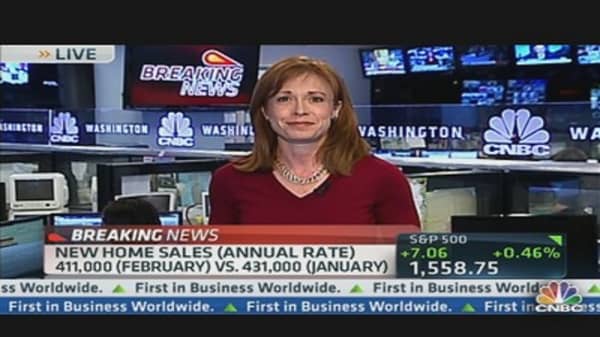While first-timers are getting more interested, current homeowners are getting less interested, according to the Campbell survey. Meanwhile investor interest in housing rose to a four-month high, accompanied by a rise in sales of distressed properties. Investors, who largely buy all in cash, have been the main competition for regular home buyers, and as big hedge funds and private equity purchase lower end, distressed homes in bulk, that pushes prices drastically higher. Witness a 23 percent jump in Phoenix home prices in January, according to the latest reading from S&P/Case-Shiller.
While the number of distressed homes is falling, the remnants of the housing crash are still weighing on the recovery. There are still 5.1 million properties where the owner is either delinquent on the mortgage or the home is already in the foreclosure process, according to a new report from Lender Processing Services. As banks ramp up the foreclosure process, following delays due to processing fraud over the past few years, more distressed properties will come to the market. That may ease some of the price gains, although investors, still reaping rental rewards, seem ready for all of it.
(Read More: No Money? No Worries. Home Lenders Ease Rules)
What remains to be seen is for how long those rents will stay strong? With more Americans looking to buy and souring on renting, rent rates could start to come down. In addition, new supply of rental apartment buildings will be hitting the market in force over the next two years, as developers have been increasing multi-family housing construction.
(Read More: Defying Gravity: Miami Condos Soar Again)
—By CNBC's Diana Olick; Follow her on Twitter @Diana_Olick or on Facebook at facebook.com/DianaOlickCNBC
Questions? Comments? RealtyCheck@cnbc.com





